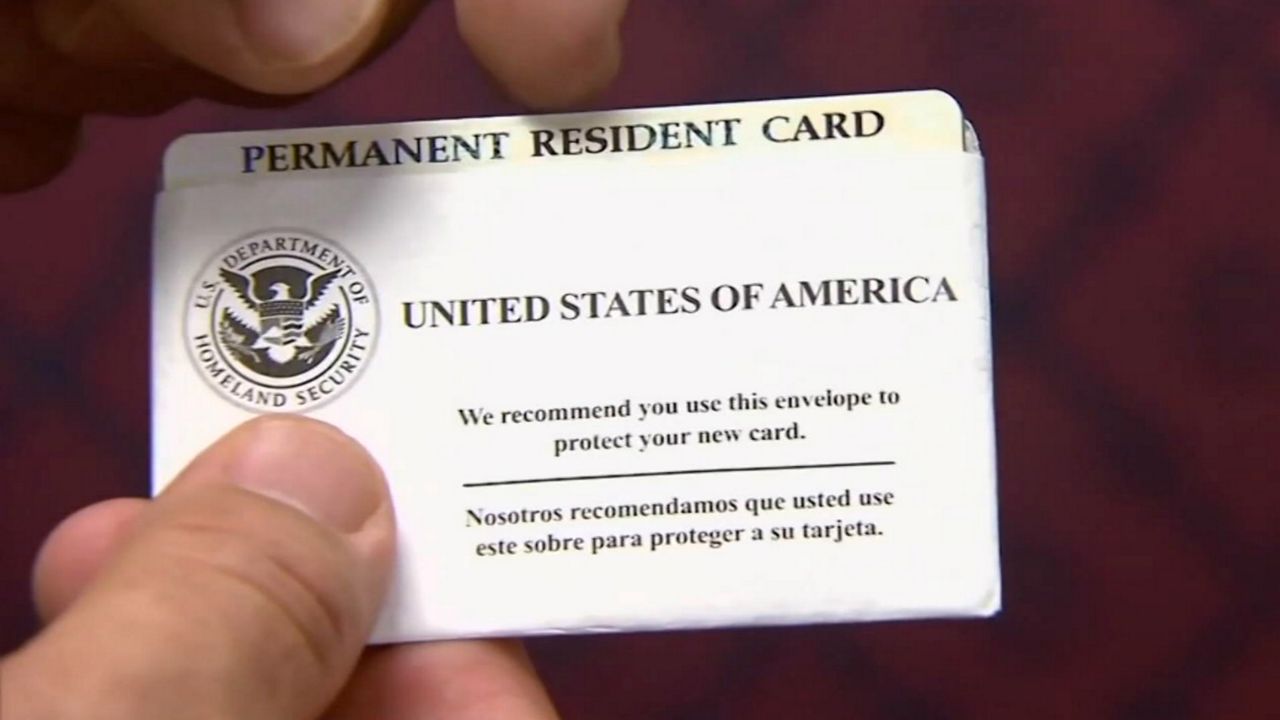A federal judge on Wednesday blocked the “public charge” rule — which allows the government to deny legal permanent residency to many immigrants who have received public benefits — during the coronavirus pandemic and while a legal challenge makes its way through lower courts.
As part of a coalition with attorneys general from Connecticut and Vermont, and the corporation counsel for New York City, New York Attorney General Letitia James was granted a preliminary injunction by U.S. District Judge George Daniels of the Southern District of New York.
The ruling means for the time being the Trump Administration cannot continue denying green cards to many migrants who use Medicaid, food stamps, housing vouchers, or other forms of public assistance.
The public charge rule had been in effect nationwide since February 24, but James argued it should be halted while her challenge went through, and that the rule was exacerbating the coronavirus pandemic.
“For nearly five months, the Public Charge Rule has further exacerbated the public health crisis the country faces by punishing New York and other immigrant-rich states — stripping families of their ability to access basic services,” James said in a statement following the injunction. “Immigrants have been on the front lines fighting this pandemic from the start, and today’s injunction will ensure they are not targeted for obtaining health coverage or other vital services, as they continue to battle COVID-19.”
In a 5-4 vote January 27, the U.S. Supreme Court allowed the Trump administration to put in place the policy, and reversed a ruling from the 2nd U.S. Circuit Court of Appeals in New York that had kept in a place a nationwide hold on the policy following lawsuits that have been filed against it. But states were allowed to go back to lower courts to seek an injunction.
Federal law already requires those seeking to become permanent residents or gain legal status to prove they will not be a burden to the U.S. — a "public charge," in government speak — but the new rules detail a broader range of programs that could disqualify them.
It's part of a dramatic overhaul of the nation's immigration system that the administration has been working to put in place, despite legal pushback. While most attention has focused on President Donald Trump's efforts to crack down on illegal immigration, the “public charge” rule targets people who entered the United States legally and are seeking permanent status. Trump is trying to move the U.S. toward a system that focuses on immigrants' skills instead of emphasizing the reunification of families.
Under the rule, U.S. Citizenship and Immigration Services was weighing whether applicants have received public assistance, along with other factors such as education, income, and health, to determine whether to grant legal status.
The rules don't apply to U.S. citizens, though immigrants related to the citizens may be subject to them. The “public charge” rule does not affect those who already have green cards.
The federal government has argued the “public charge” rule ensures those who come to the country don't become a burden, though they pay taxes.
Migrants make up a small percentage of those who get public benefits. In fact, many are ineligible for such benefits because of their immigration status.
But critics say the “public charge” rule is a wealth test aimed at weeding out those who rely on federal assistance, and immigrant rights groups say the rule scares immigrants away from asking for needed help. And they have voiced concern the rule give officials too much authority to decide whether someone is likely to need public assistance in the future.
On average, 544,000 people apply for green cards every year, with about 382,000 falling into categories that would be subject to the review, according to the government. Guidelines in use since 1999 refer to a "public charge" as someone primarily dependent on cash assistance, income maintenance or government support.
Under the new rules, the Department of Homeland Security has redefined a “public charge” as someone who is "more likely than not" to receive public benefits for more than 12 months within a 36-month period. If someone uses two benefits, that is counted as two months. And the definition has been broadened to include Medicaid, housing assistance and food assistance under the Supplemental Nutrition Assistance Program, or SNAP.
